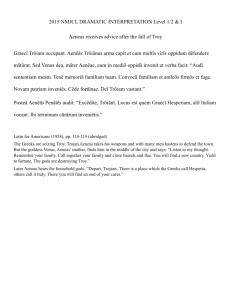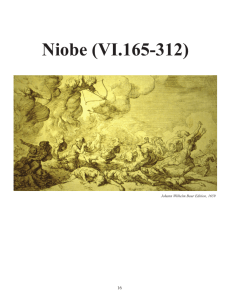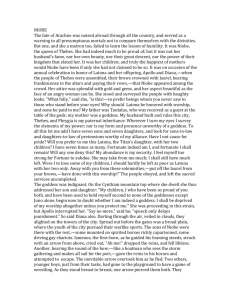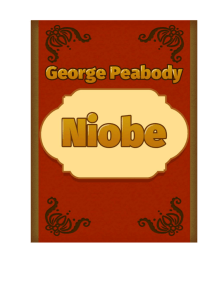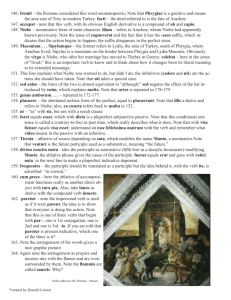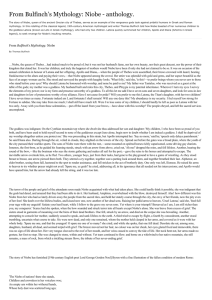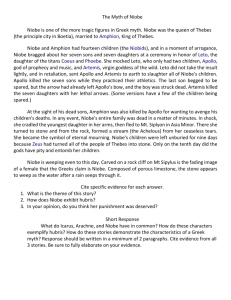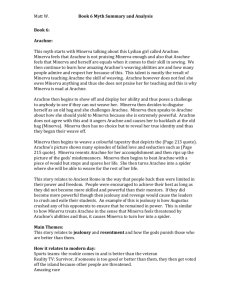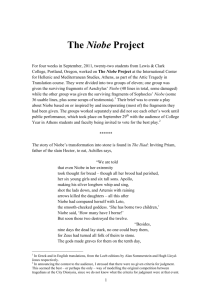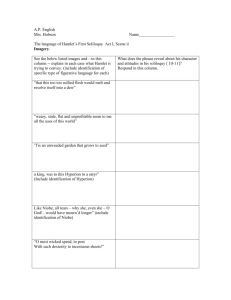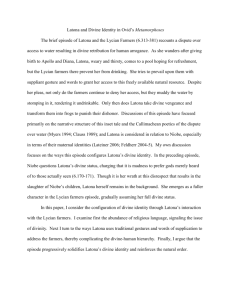Exercise III Chapter 5
advertisement
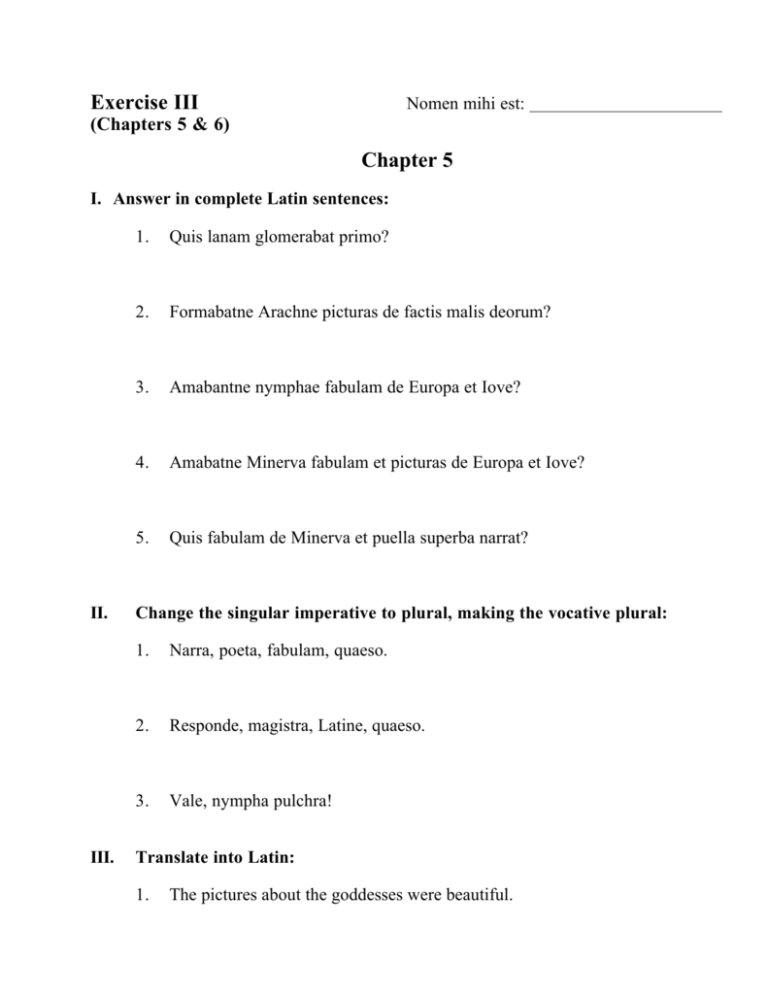
Exercise III Nomen mihi est: (Chapters 5 & 6) Chapter 5 I. Answer in complete Latin sentences: II. III. 1. Quis lanam glomerabat primo? 2. Formabatne Arachne picturas de factis malis deorum? 3. Amabantne nymphae fabulam de Europa et Iove? 4. Amabatne Minerva fabulam et picturas de Europa et Iove? 5. Quis fabulam de Minerva et puella superba narrat? Change the singular imperative to plural, making the vocative plural: 1. Narra, poeta, fabulam, quaeso. 2. Responde, magistra, Latine, quaeso. 3. Vale, nympha pulchra! Translate into Latin: 1. The pictures about the goddesses were beautiful. 2. The girls love beautiful stories. 3. The poet Ovid tells about the goddess and the maiden. 4. Arachne also tells stories about the goddess. 5. The rash girl was proud. 6. Minerva was angry because Arachne told stories about the wicked deeds of the gods. 7. "I am trying to teach you," said Minerva. 8. Minerva changes the form of the proud girl. Chapter Six I. Responde Latine, quaeso: 1. Habetne Niobe septem filios? 4. Quid est nomen filiae Latonae. 5. Quid est nomen filio Latonae? III. 7. Cur erat Niobe superba? 9. Ubi ambulabat Niobe? Translate into Latin: 1. I was carrying - 2. he changed - 3. we told - 4. they were - 5. you (sing.) are - 6. they gave - 7. you (pl.) walked - 8. I am having - 9. they are decorating - 10. do we pray? 11. he was changing 12. she is looking about 13. they were having 14. did we show? 15. he ought to decorate 16. we ought to give 17. they tried to walk V. Translate into Latin: 1. Diana was the daughter of Latona. 2. Niobe had seven daughters. 3. Niobe also had seven sons. 4. Phoebus was the son of Latona. 5. Niobe was proud because she had seven sons and seven daughters. 6. Niobe said, "Women of Thebes, worship me; give gifts to me, not to Latona."
